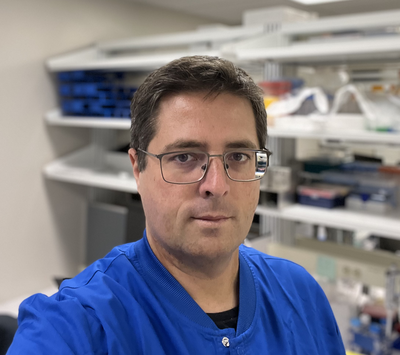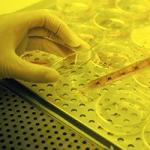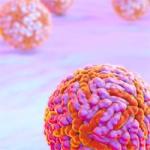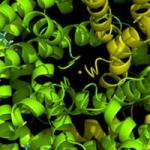
Research Topics
Gene expression is commonly portrayed as a linear flow from chromatin to ribosomes. Yet, it is the balance between the synthesis and decay of messenger RNA (mRNA) that ultimately determines protein output. The degradation arm of this balance, particularly the stepwise shortening of the poly(A) tail (deadenylation) that precedes mRNA destruction, is emerging as a decisive checkpoint in cell-state transitions, metabolic adaptation, and oncogenic re-programming. Despite its importance, mRNA decay has lagged behind transcription and translation in mechanistic depth, primarily because the unstable, heterogeneous ribonuclease assemblies that initiate decay have resisted biochemical reconstitution.
The last decade has seen a paradigm change. Structural snapshots, single-nucleotide kinetic profiling, and the first complete reconstitutions of the human mRNA decay complexes now provide a solid mechanistic foundation for studies in how cells decide whether a transcript will be translated, stored, or eliminated. My laboratory, initially located at the Max Planck Institute and now at the National Cancer Institute since 2019, has been at the forefront of this shift. We integrate structural biochemistry, systems-level genomics, chemical biology, and advanced protein design to understand and ultimately manipulate the molecular logic that connects poly(A) tail length, RNA-binding proteins (RBPs), and decay factor recruitment to control gene expression programs in development and cancer.
Our research centers on a fundamental question: How do dynamic, modular interactions within the CCR4–NOT complex and with other factors dictate the fate of cellular mRNAs, and how are these processes rewired in development and disease?
Looking ahead, our long-term goal is to determine whether natural or engineered modulators of activity, as well as RNA-binding proteins that recruit CCR4-NOT, can be harnessed to therapeutically reshape transcriptomes in cancer and chronic disease.
Our overarching hypothesis is that low-affinity, multivalent, and highly dynamic interfaces, rather than single high-affinity contacts, provide the speed, reversibility, and context adaptability essential for post-transcriptional control. By mapping, quantifying, and re-engineering these interfaces, we aim to uncover fundamental principles of RNA regulation and identify novel drug targets with the potential to seed first-in-class therapeutic strategies.
Our primary approach to studying these molecular events involves reconstituting the relevant regulatory macromolecular complexes from highly purified recombinant components and examining them in vitro. To this end, we employ biochemical assays and biophysical approaches to study the interactions between the components using the instrumentation and facilities available at the Biophysical Resource, part of the Center for Structural Biology. To gain a deeper understanding of the molecular mechanism, we determine high-resolution cryo-EM structures through single-particle analysis using data collected on the Titan Krios G4 and Talos Arctica microscopes available on our campus. Among our recent achievements is the reconstitution of the complete human CCR4-NOT deadenylation complex and the entire network of principal human decapping factors. These unique biochemical tools and reagents enable us to study the 5′-to-3′ mRNA decay pathway with unprecedented precision and control using structural, biochemical, and cellular approaches.
To relate biochemical and structural insights to function, we test our derived hypotheses directly in human cells, for example, by complementing different variants in cell lines where the expression of individual molecular factors has been knocked out by CRISPR gene editing. This approach has proved very powerful in validating and mapping interactions in a cellular context. We utilize high-throughput short-read sequencing, combined with bioinformatic analysis, to survey the dynamics of the cellular transcriptome and translatome. We also employ long-read direct RNA sequencing approaches to study mRNA metabolism using Oxford Nanopore instruments available at the RNA Biology Laboratory.
Relevance to Cancer
Dysregulation of post-transcriptional control is a hallmark of numerous human diseases, including autoimmunity, neurodegeneration, and, most prominently, cancer. By uncovering the fundamental mechanisms that govern mRNA turnover and translation, our research provides critical insights into how these processes are perturbed during oncogenic transformation and in age-related chronic diseases. A deeper mechanistic understanding of RNA regulation not only advances basic biology but also opens new therapeutic avenues, offering fresh strategies to intervene in tumor initiation, progression, and metastasis.
Biography
Eugene Valkov received his doctorate in molecular biophysics from the University of Oxford. As a postdoctoral researcher at the MRC Laboratory of Molecular Biology in Cambridge, he investigated the molecular mechanisms of mRNA export and decay. In 2014, he joined the Max Planck Institute in Tübingen as a staff scientist with Elisa Izaurralde and was promoted to group leader in 2017. He joined the RNA Biology Laboratory in 2019.
Related Scientific Focus Areas



Molecular Biology and Biochemistry
View additional Principal Investigators in Molecular Biology and Biochemistry


This page was last updated on Monday, September 1, 2025